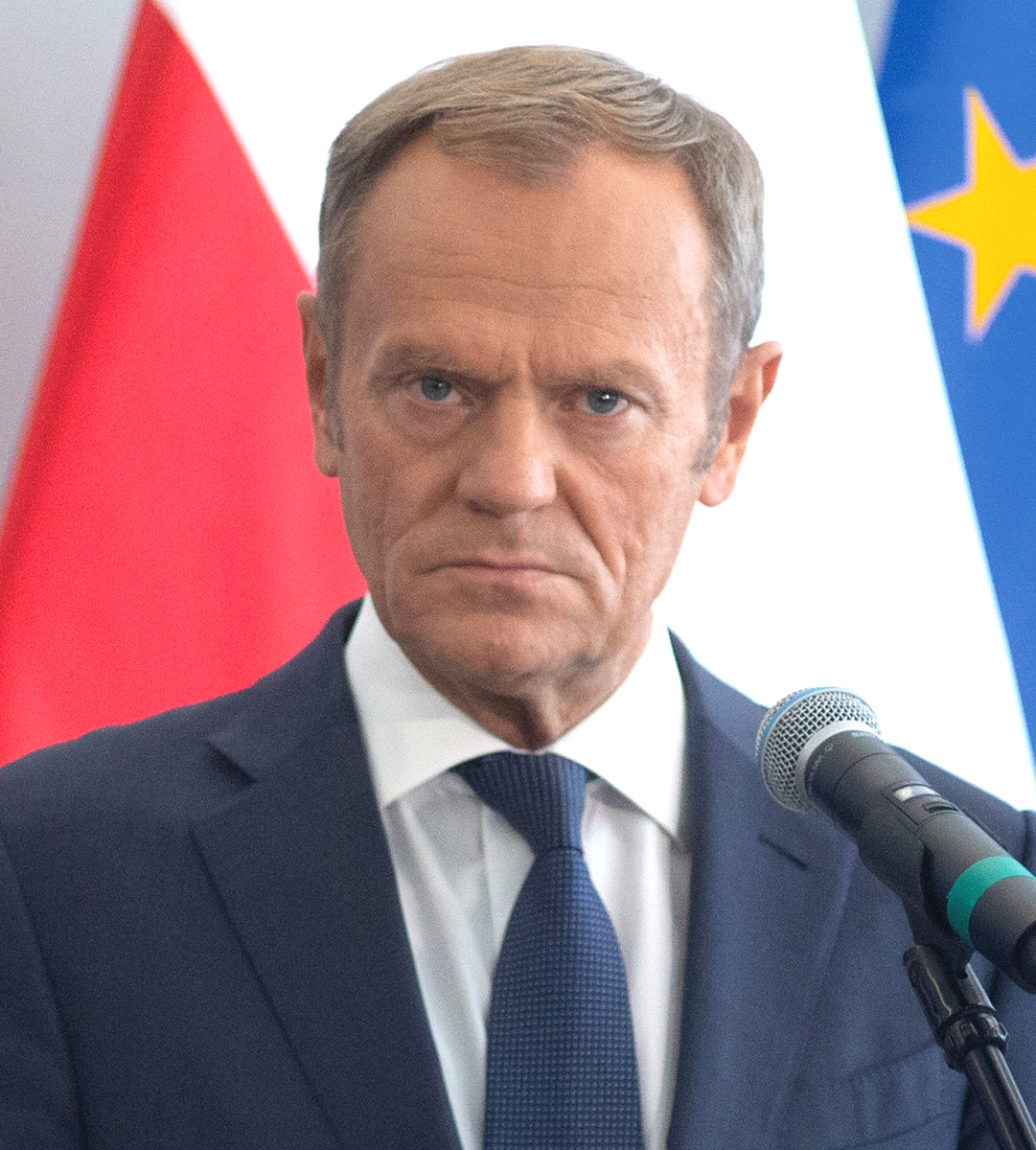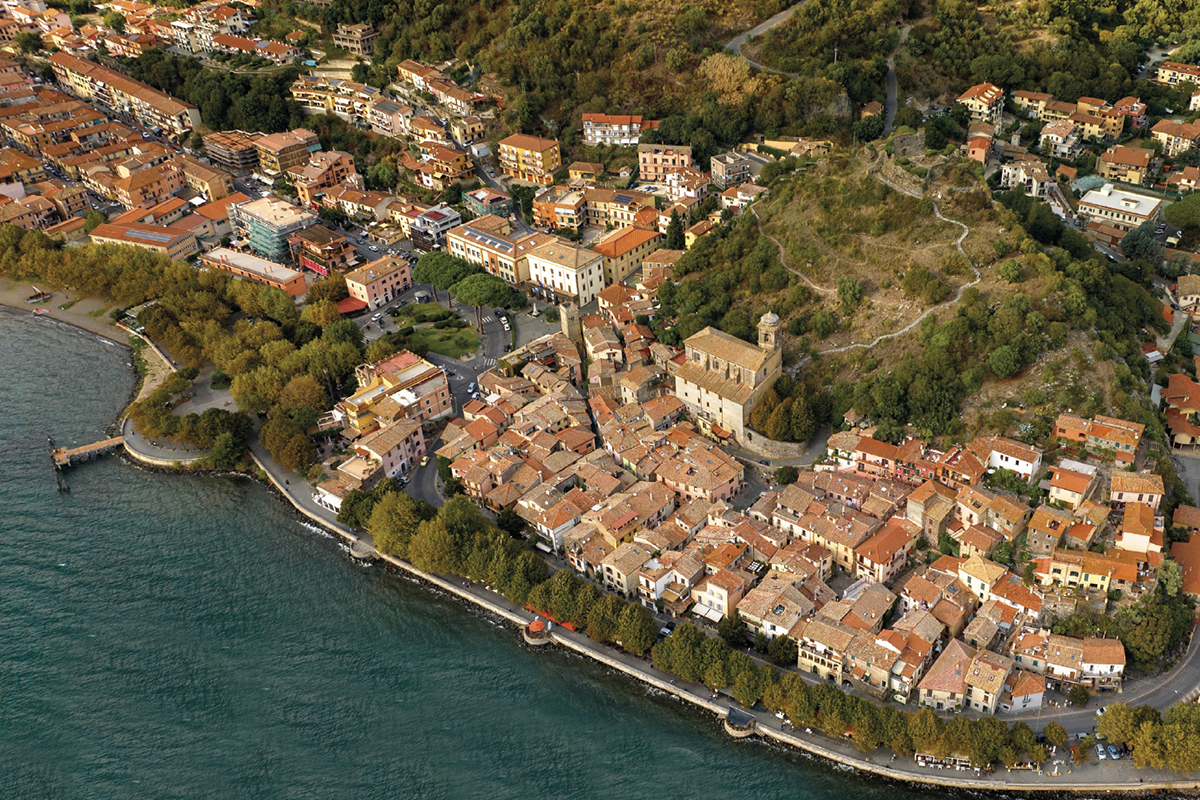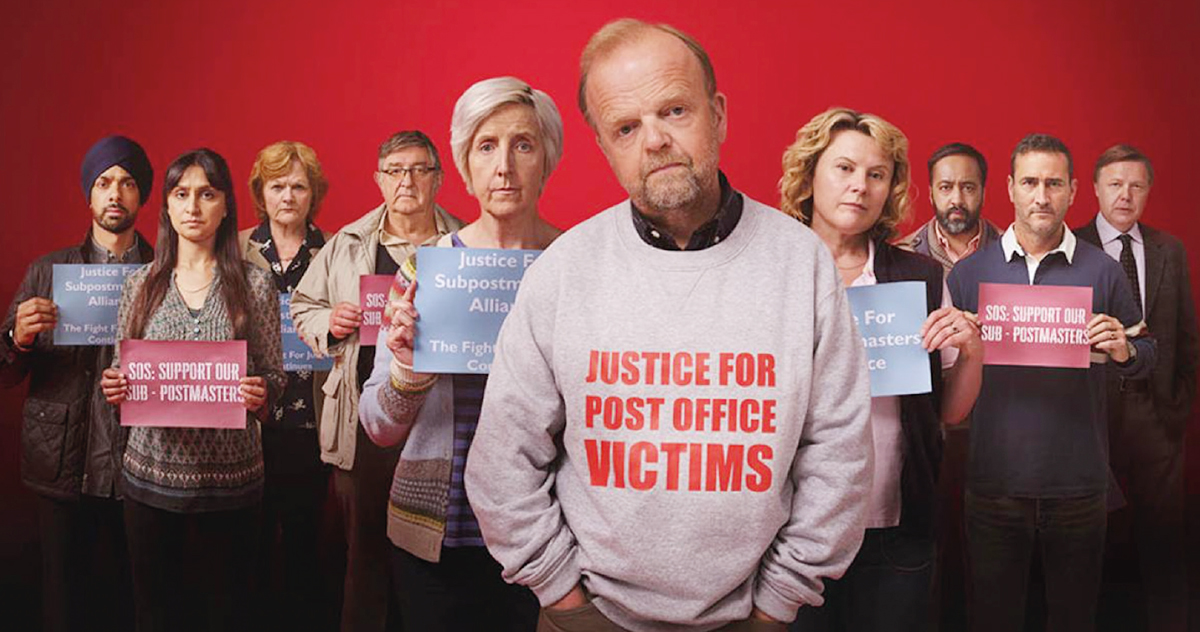
For many in the second half of the 20th Century, Poland was seen as a grey, put-upon patsy of the Soviet Union. Its primary purpose, the one that most suited its eastern monolith of a neighbour, was to act as a buffer between the ‘Imperialist West’ and the ‘Great Bear’ in the east.
Of course, Poland’s millennium-long history as an independent state is far more varied and colourful than that, and the country’s recent re-election of a former Prime Minister who had left to head a bigger playground – the European Council – and return as leader shows a confidence in its people believing in its leaders.
Alan Wares looks at what’s next for Poland.
Like most parliaments across Europe, Poland’s parliament is made up of many – far more than the UK’s parliament – splintered political parties. Single-party governments are rare, with negotiated coalitions, featuring parties who are largely able to work across issues, forming.
The strength of any coalition is often determined by the similarity in policies across parties on any given subject being robust enough to form a bond. Conversely, successful coalitions can also come about by the willingness of any given party to compromise their own policies away in order to keep another party, whose polices they really don’t like, out.
The most recent parliamentary election in Poland took place on Sunday, October 15th 2023. Seats in the Sejm – the lower house – and the Senate, the upper house, were up for grabs.
One of the central themes of the elections was a reactionary law, introduced by the populist Polish government of arbitrarily banning any politician, current or retrospective, from the Sejm if they had been seen to have had ties with Russia. What defined ‘close ties’ was a very fluid consideration.
This law was seen as a direct attack on the opposition leader Donald Tusk who, in his previous capacity as Prime Minister until 2014, was accused of making Poland too reliant on Russian gas for its fuel.
The law was heavily criticised by both the US and the EU as being anti-democratic. Right-wing Polish President Andrzej Duda watered down the laws in June 2023, but not before Poland’s major cities saw hundreds of thousands on the streets in protest at what was seen as such a draconian law.
The 2023 elections, which operate through proportional representation, brought about a change in government and direction for Poland, although not without a certain amount of procrastination on the part of Duda.
Andrzej Duda is the head of state in Poland, a role elected by common plebiscite which takes place every five years. The next election is due on May 18th 2025. As such, for a head of republic, he is a political nominee, and a member of the right-wing populist Prawo i Sprawiedliwość (PiS – or ‘Law & Justice Party’). His party, led in the Sejm by the prime ministerial incumbent Mateusz Morawiecki, had also led the lower house since 2017.
POLAND - CROSSROADS OF EUROPE
Poland is named after the Polans tribe, the dominant group over the Celtic, Scythian, Germanic, Sarmatian, Baltic, Slavic and other tribes in the region. In the early 10th Century, the Polans formed a tribal federation and later a centralised monarchial state. In 966, ruler of the Polans, Mieszko I, accepted Christianity under the auspices of the Roman Church with the Baptism of Poland. It has been a largely Catholic country ever since.
Like most of the continent, Poland’s hierarchies squabbled and fought with their European neighbours – usually between bickering houses and monarchs which cost the lives of anyone but the bickering houses and monarchs and the myriad wars – to the point that the map of Poland since its inception over 1,000 years ago has rarely remained constant.
Even in the 20th Century, with the advent of two World Wars, Poland was at the epicentre of everyone’s avaricious desires, and often the patsy for constant inter-monarchial feuding.
The first to really take arms against the Europe-wide Nazi invasions, the Poles were quickly crushed. Subsequently, thousands of Polish airmen eventually joined the RAF; 145 Poles fought in the Battle of Britain. Soon after, their bravery, sometimes bordering on recklessness, was the talk of London.
Meanwhile, take a look at the map of the country pre-1939, and post-1945. There is a large central belt which remained Poland. However, the USSR, in its lust for glory and global revolution, took the eastern, Slavic part of Poland, while Germany ceded lands to Poland in the west.
As a result of the election, the PiS lost its overall majority in the Sejm, although still came out with the highest number of seats. However, what was clear – certainly as a result of the political horse-trading before the election – was the reluctance of any party to form a coalition with Morawiecki.
Step forward Donald Tusk, former Prime Minister of Poland, and leader of the Platforma Obywatelska (PO – or ‘Civic Platform’). PO is a centrist, liberal party, formed in 2001, made up of former parties – including the AWS, the political wing of the Solidarity movement.
Tusk’s party came second in the popular vote, still well short of a majority, but was able to quickly form a coalition with Trzecia Droga (Third Way) and Lewica (The Left). This has left the newly-formed ‘Civic Coalition’ as the ruling collective.
All of this could have been done in a smooth, quick transition. However, President Duda, not wanting to see his PiS party lose power (by this time, a coalition had been formed, and the PiS was not in a position to form a government), delayed the transition in the forlorn hope of keeping Morawiecki in power. Eventually, both Duda and the Polish parliament swore Donald Tusk into power on December 11th 2023.
Donald Tusk
Donald Tusk was born on April 22nd 1957 in Gdansk, Poland – a city with a wild, colourful history in its own right. His father, Donald Tusk Sr (1929–1972), was a carpenter whilst his mother, Ewa Tusk (1934–2009) was a nurse. He married Małgorzata Sochacka in 1978, and they have two children – Michał and Katarzyna. Tusk speaks four languages: Polish, Kashubian, German and English.
Tusk describes himself as a Pole, Kashubian and European, although he also has German ancestry. Kashubia is a western Slavic region of Poland, with its own language, closely related to Polish.
Tusk has talked of Gdansk as “a typical frontier town” with “many borders… between ethnicities”. Danzig – the German name for Gdansk – was part of the German empire from 1772 until 1945, when it was ceded back to the new Polish republic.
This, together with his Kashubian ethnic ancestry and multilingual family, meant that he grew up with an awareness that “nothing is simple in life or in history”, which informed his adult political view that it is “best to be immune to every kind of orthodoxy, of ideology and most importantly, nationalism”.
He has described his young life under communism as “so hopeless,” due to the boredom and monotony, with “no hope for anything to change.” His young self was a “typical hooligan” who often got into fights.
Tusk’s interest in politics came in his early 20s from watching clashes between striking workers and riot police when he was a teenager. Solidarity, the (at the time, illegal) Polish trade union movement, led by Lech Walesa, had formed in the shipyards of Gdansk. Tusk enrolled at the University of Gdansk to study history, and graduated in 1980. While studying, he was active in the Student Committee of Solidarity, a group that opposed Poland’s communist rule at the time.
Tusk was one of the founders of the Liberal Democratic Congress (Kongres Liberalno-Demokratyczny – or KLD) which, in the 1991 elections won 37 seats in the Sejm. The KLD later merged with the Democratic Union to become the Freedom Union. He became deputy chairman of the new party, and was elected to the Senate (Poland’s upper parliamentary house) in the next election in 1997. In 2001, he co-founded Civic Platform, a party he leads today, and became deputy speaker in parliament after the party won seats in the year’s election.
Tusk stood unsuccessfully for President of Poland in the 2005 election, but went on to lead the Civic Platform to victory at the 2007 parliamentary election, and was appointed prime minister. He led the party to a second victory in the 2011 election, becoming the first Polish prime minister to be re-elected since the fall of communism in 1989.
In 2014, he left Polish politics to accept an appointment as President of the European Council, having been the longest-serving prime minister of the Third Polish Republic, which had been established 1989). He served this role until 2019, and although initially he remained in Brussels, he later returned to Polish politics in 2021, becoming leader of the Civic Platform for a second time.
President of the European Council
Tusk succeeded Herman Van Rompuy as President of the European Council on December 1st 2014. After assuming office, Tusk worked to promote a unified European response to Russia’s military intervention in Ukraine. Tusk also made attempts to co-ordinate the EU’s response to the European migrant crisis, and warned illegal economic migrants not to come to Europe.
As a fiercely pro-EU advocate, Tusk warned of dire consequences should the UK vote to leave the bloc. After the UK voted to leave, he pursued a hard line on the UK’s withdrawal from the European Union stating that the country’s only real alternative to a “hard Brexit” is “no Brexit”.
On February 6th 2019, Tusk held talks with Irish Premier Leo Varadkar in Brussels to discuss Britain’s upcoming departure from the EU, stating that there was a “special place in Hell for those who promoted Brexit without even a sketch of a plan how to carry it out safely.”
Tusk opened his statement by saying, “I know that still a very great number of people in the UK, and on the continent, as well as in Ireland, wish for a reversal of this decision. I have always been with you, with all my heart.
“But the facts are unmistakable. At the moment, the pro-Brexit stance of the UK Prime Minister, and the Leader of the Opposition, rules out this question. Today, there is no political force and no effective leadership for Remain. I say this without satisfaction, but you can’t argue with the facts.”
It’s safe to say that, as a staunch pro-European, he was a bit annoyed.
On March 9th 2017, Tusk was re-elected for a second term to run until November 30th 2019. He received 27 of 28 votes (the UK had not left the EU by this point, and still had voting rights); the one vote against him came from Beata Szydło, the Prime Minister of Poland.
In protest at Tusk’s re-election, Szydło refused to sign the EU statement issued at the end of the council’s meeting, though other EU leaders spoke in favour of him; including Netherlands Prime Minister Mark Rutte; German chancellor Angela Merkel; Jean-Claude Juncker the European Commission President.
Such was his fervour to expand the EU, Tusk said that the EU should open accession talks with both Albania and North Macedonia.
Tusk condemned the 2019 Turkish offensive into north-eastern Syria. He reprimanded Turkish President Recep Tayyip Erdoğan for threatening to send millions of Syrian refugees to Europe and denounced the Turkish operation in northern Syria as destabilising the region, which he demanded to halt.
Writing of his tenure as President of the European Council, LSE political scientist Sara Hagemann said “he set the tone for a liberal and progressive agenda at a time of significant threat from populist and pro-Russian voices in Europe.”
THE COUNCIL OF EUROPE
The European Council is a collegiate body that defines the overall political direction and priorities of the European Union. The European Council is part of the executive of the European Union (EU), alongside the European Commission.
It is composed of the heads of state or government of the EU member states, together with the President of the European Council, and the President of the European Commission. Established as an informal summit in 1975, the European Council was formalised as an institution in 2009 after the Treaty of Lisbon. The current President is former Belgium Prime Minister, Charles Michel.
While the European Council has no legislative power, it is a strategic (and crisis-solving) body that provides the union with general political directions and priorities, and acts as a collective presidency. The European Commission is the sole initiator of legislation, though the European Council provides a guide to legislative policy.
Back in Poland
In July 2021, Donald Tusk returned to Warsaw, re-engaging actively in Polish politics as leader of Civic Platform. By May 2022, Tusk was among the leading choices among opposition figures for the potential future prime minister role, according to a public poll. During his campaign, Tusk advocated for enhanced LGBT rights – a bold move for an eastern European.
Poland’s cultural, political and geographical proximity to Ukraine puts it in a precarious, yet influential position as a result of the Russian invasion. Soon after the latest engagement started in February 2022, millions of refugees fled Ukraine, with the majority seeking sanctuary in Poland.
According to the UN High Commission for Refugees as of May 13th 2022, there were 3.3m refugees in Poland. Unable to cope with the entire migration, much of western Europe has taken in those refugees.
One diplomatic problem Tusk has inherited, which came to a head in September 2023, is a spat between Poland and Ukraine over grain; an issue which President Duda had sought to soothe over, but which was constantly re-ignited by prime minister Morawiecki. It has meant Poland refusing to assist Ukraine militarily. Tusk, no fan of Russia, will seek to remedy this situation with its close ally as quickly as possible.
The immediate future of Poland, given the make up of the newly elected government, looks more liberal, less populist than under the previous incumbents. Tusk will almost certainly attempt to make Poland’s political and economic role in the EU a more central one but, while looking towards Europe, keeping an eye over its shoulder at the Great Bear to the east.





